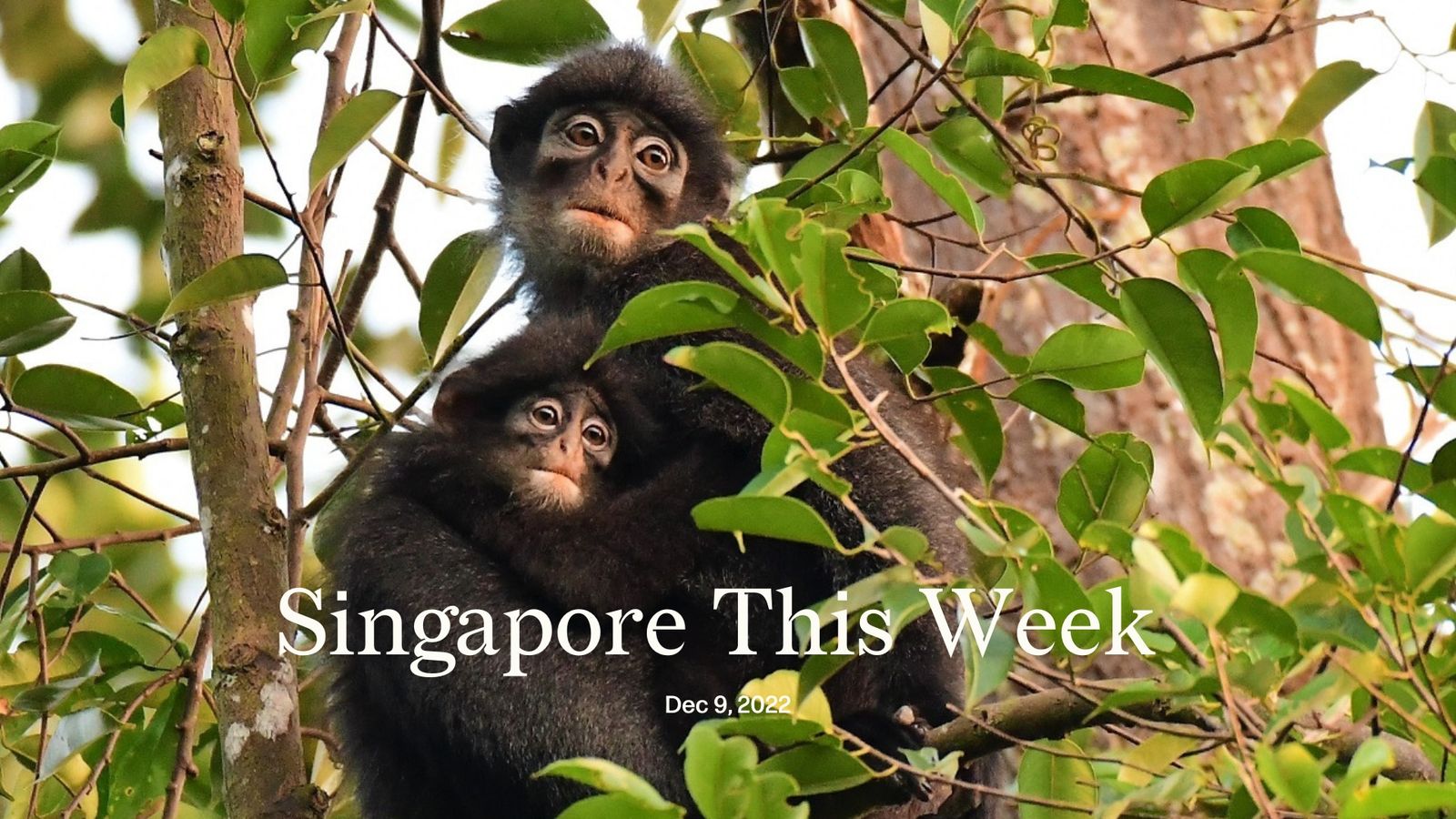Politics: A PAP politician’s integrity is under the spotlight
Christopher de Souza, a member of parliament with the ruling People’s Action Party (PAP), has been found guilty of professional misconduct by a disciplinary tribunal. The tribunal found that in 2018-19 de Souza had not made a full disclosure to the court although he was aware that his client had breached the conditions of a search order, which “...amounted to suppression of evidence by Amber [client], and by filing the supporting affidavit, the respondent was a party to and assisted in such suppression.” It dismissed four of the five charges brought by the Law Society of Singapore (LawSoc) but found the remaining one sufficiently serious for him to face possible disciplinary sanction by The Court of Three Judges (C3J), the highest disciplinary body for the legal profession, which has the power to suspend or disbar lawyers. De Souza denies all charges. Critics will wonder about his political future, given that “integrity, honesty and incorruptibility are fundamental to the party,” as the PAP said in a statement. In July 2021, an Inquiry Committee found that he had breached his duty to the court and recommended that he be fined S$2,000. Though the Committee did not think a disciplinary tribunal was necessary, LawSoc pushed for it. Earlier this year, Parliament passed a Bill that raised the fine quantum for MPs to be disqualified from S$2,000 to S$10,000, citing inflation. But this has no bearing on de Souza, for there are currently no criminal proceedings against him, only a professional misconduct charge before the C3J. There is thus no immediate danger of him being disqualified as an MP.
Society: Drivers, not poachers, wildlife’s biggest threat in Singapore
Two male Raffles’ banded langurs, a critically endangered species, were found dead along the Seletar Expressway (SLE) barely 24 hours apart, reducing their population to 73. Many Singaporeans would be familiar with the more populous long-tailed macaque, but few would have seen the dark-furred langur, endemic to Singapore and Johor. Their deaths add to a rising roadkill toll that includes herpetofauna and the critically endangered Sunda pangolin. And have further reduced the langurs’ gene pool, resulting in more inbreeding, explained Andie Ang, a primatologist and chair of the Raffles’ Banded Langur Working Group. Ang added that a smaller gene pool could lower fertility, as well as increase the species’ vulnerability to diseases, genetic disorders and higher infant mortality. Unlike the macaques, the langurs are arboreal, rarely descending to the forest floor. What were they doing on the SLE? With the creeping expansion of tarmac across Singapore and rapid habitat loss from urbanisation, the survival of the langur may have hit a roadblock. With more than 9,500 lane-km of paved roads here—Singapore has one of the highest road densities in the world—it’s impossible to completely eradicate roadkill. Compounding this is the fragmentation of forests, which has, ironically, forced animals to risk their lives in search of water, food, shelter, mates and nesting sites. The Mandai Wildlife Group has made efforts to minimise accidents. Before it opened a wildlife crossing in late 2019, floodlights were installed to discourage animals from crossing the road. Could more be done? Aside from building eco-bridges or subways, authorities could erect better signage in high-risk, roadkill zones to exhort motorists to slow down. Also, if you see a hit animal, immediately call the NParks Animal Response Centre (1800-476 1600). Respond the same way you would to a fallen friend.
Society: Graduates not able “to eat” their degrees, but able to afford to eat better
Anyone still wondering whether paper qualifications in a meritocracy are more lucrative, in this age of socially acceptable, alternative career paths, might finally put to rest any lingering doubt. A National University of Singapore study has found that Singaporeans in their 20s and 30s with a university degree or postgraduate degree earn a median monthly salary (S$4,200) more than twice that of those with secondary and lower, or a technical education (S$2,000). (For diploma or A-level holders it’s S$2,600.) “We value paper qualifications a lot,” confirmed Irene Ng, an associate professor and the study’s principal investigator, who described the salary premium of a university degree as “substantial”. In October, Lawrence Wong, deputy prime minister, called for the respect of “those who labour with their hands and hearts.” Encouraging different ways to achieve job success and satisfaction has been a long-held refrain from the government. In 2013, Khaw Boon Wan, then national development minister, said that a university degree wasn’t “vital for success”. He quipped memorably, “You own a degree, but so what? You can’t eat it,” adding that it would be “meaningless” if a degree couldn’t provide “a good life” and “a good job”. Perhaps what Khaw could do now is to eat his words. Shifting the nation’s mindset and value system away from the supposed advantages of academic accomplishment goes beyond egging youth on to define their own success. It requires employers to recognise work performance and job experience as equally important measurements of an employee’s ability and worth. Graduates might not be able to literally eat their degrees, but by taking home a much higher income than non-graduates they’ve surely been able to eat better, at the very least.
Arts: Honouring artistic excellence
Artists Aravinth Kumarasamy and Kok Heng Leun were conferred the 2022 Cultural Medallion, Singapore’s top arts accolade, for their contributions to traditional Indian dance and theatre scenes, respectively. Kumarasamy, 56, an award-winning artistic director, has developed more than 35 original works that showcase “the depth and diversity” of his practice, said the National Arts Council, the awards’ administrator. A classically trained dancer, Kumarasamy left Sri Lanka, his birthplace, for Singapore at 21 years old. His innovative ways of staging traditional Indian dance productions have won him praise here and abroad, placing Asparas Arts Dance Company and local Indian dance on the world map. In response to Covid, Kumarasamy produced “SITA” and “AMARA” in 2020, two digital and CGI-based films that widened the scope for dance in the digital space. Kok, also 56, a prominent figure in Singapore’s arts sector, boasts an artistic career that spans some 30 years. A Mathematics graduate, Kok followed his passion for the arts and co-founded theatre company Drama Box in 1990, where he was artistic director from 1998 to 2022. Since then, he’s contributed extensively to the arts as theatre practitioner, playwright and dramaturg, directing over 90 productions, including Kuo Pao Kun’s classic, “The Spirits Play”, in 2009. This year, Kok co-directed “Ubin”, an immersive theatre experience that was part of the Singapore International Festival of Arts. The former nominated member of parliament has dedicated his life to speaking up for the arts community and championing civic discourse across society. Four artists below 35 received the Young Artist Award: sound designer Guo Ningru, 35; visual artist Ho Rui An, 32; animation filmmaker Jerrold Chong, 31; and flautist and composer Rit Xu, 33.
Internet culture: Activate goblin mode
Winning with 318,956 votes, or 93 percent of the total, “goblin mode” is officially Oxford English Dictionary’s word of the year. The slang term, which means “a type of behaviour which is unapologetically self-indulgent, lazy, slovenly, or greedy, in a way that rejects social norms or expectations” easily triumphed over the other contenders, “Metaverse” and “#IStandWith”. “Goblin mode” first emerged on Twitter in 2009, but went viral this February when a fake headline made its rounds on Twitter: “Julia Fox opened up about her ‘difficult’ relationship with Kanye West ‘He didn’t like it when I went goblin mode’”. At the height of Fox and West’s whirlwind relationship, Twitter user @JUNIPER created the headline to show how easy it is to disseminate false information on social media. They tweeted, “the moral of the goblin mode fake headline is you can make up something about anyone and as long as enough people believe it, it becomes real…it’s goblin mode time.” The term’s virality persisted and soon enough, “goblin mode” was incorporated into everything from TikTok trends, Vogue articles, Bloomberg headlines (“Diesel Prices Have Gone Goblin Mode”) and mental health op-eds (“‘Goblin mode’ sounds fun, but it’s just self-care gone too far”). Like many slang words, “goblin mode” took on a life of its own in online meme culture. Is its popularity reflective of our exhaustion with the carefully curated aesthetic of It girls on Instagram? A cry for help as people all over the world struggle with adapting to a world emerging from the pandemic? Or just a satirical take on fake news? It’s hard to say. But as we wind down in December, perhaps we should all activate our “goblin mode” and recharge before the new year.
History weekly by Faris Joraimi
This year’s FIFA World Cup, the most-watched sporting event on Earth, is now known for its shock victories by Asian and Arab nations. Japan beat powerhouses Spain and Germany before losing to Croatia in the “Round of 16” knockout stage, the farthest they’d gone in any World Cup. South Korea lost to Brazil in the same stage. These two East Asian giants have beaten European teams before, notably at the 2002 World Cup they co-hosted. But Japan debuted only in 1998, and South Korea in 1954. The first Asian representative to the World Cup was our neighbour Indonesia, then still the Dutch East Indies, in 1938. Japan had qualified, but withdrew. This was possibly due to diplomatic tensions with the Western powers; the second world war was just a year away. Assembling the East Indies team was a challenge, as there were two rival football federations: a “Europeans-only” Netherlands-Indies Football Union (NIVU) and the locally-run All-Indonesia Football Association (PSSI). Many from PSSI, a nationalist organisation using sports as a vehicle for independence, refused to collaborate with NIVU. Football was political even then. Eventually, a selection of players drawn from both federations made the voyage to France, where they played Hungary, losing 6-0. (Hungary eventually made it to the finals, where it lost 4-2 to Italy). The format was all knockouts in those days, so the Dutch East Indies was sent packing after one match. Even though they had to wear orange jerseys, the colour of the Dutch royal family (and what the Netherlands’ national team uses today), the native players felt proud to represent what they saw as their country, fighting to be free. “It doesn’t matter what happened. I defended Indonesia,” player Tjaak Pattiwael told his son.
Tech: Tracking lay-offs in the SG tech ecosystem
From July to mid-November this year, 1,270 Singapore citizens and residents were retrenched from the information and communications (I&C) sector, or what’s commonly called the “tech sector”. This is higher than the sector's five-year annual average of 790. Dr. Tan See Leng, minister of manpower, said that Singapore's tech layoffs are part of a global trend. The latest to do so is Carousell, an online ad and classified platform, which laid off 110 employees, or 10 percent of its workforce. The news comes after Carousell’s revenue growth slowed dramatically. In 2020, it tripled its year-on-year revenue; but its 2021 revenue of US$49.5m (S$67.2m) represents just a 21.8 percent year-on-year increase. Looking at the big picture, however, these layoffs are more than offset by gains in employment. There was an increase of 7,000 citizens and residents employed in tech in the first half of 2022, bringing total citizen/resident employment in the sector to 136,100 as of June. Furthermore, most tech workers were able to find work soon after being laid off, Dr. Tan said. It’s not all gloom.
Tech: Singapore unveils new worker protections for gig-economy workers
Accepting recommendations from the Advisory Committee on Platform Workers, Singapore has unveiled new protections for gig-economy workers, to take effect in 2024. Ride-hailing and on-demand delivery workers in Singapore will now get the same level of work injury compensation as full-time employees and will be required to contribute to the Central Provident Fund. Despite employee-like safeguards, platform workers will neither be classified as employees nor self-employed. They’ll have a new category of their own. The move comes amid growing scrutiny on the rights of platform workers in the region. The advisory committee also recommended that platform workers be granted the right to seek formal representation. It established the Tripartite Workgroup on Platform Workers Representation in August to create a new framework for this. Singapore's main gig-economy platforms welcomed the country's decision not to classify ride-hailing drivers and on-demand delivery people as employees, but they objected to how street-hail taxis and certain logistics companies are exempt from the new rules, noting that the changes will have a smaller impact on them. Platform companies also warned that the increased business costs of the new measures will almost certainly be borne by consumers and gig workers themselves. As more and more Singaporeans turn to gig work, it’s important that they are afforded the protections that all of us take for granted.
Tech: What’s next for Razer?
Singapore’s gaming darling, Razer, may soon be up for grabs. Tan Min-Liang and the late Robert Krakoff co-founded Razer in California and Singapore in 2005. It went public in Hong Kong in 2017. But, a consortium led by CVC Capital Partners, a global alternative investment manager, Tan, and board member Kaling Lim later proposed taking the company private for US$3.2bn (S$4.3bn) which was less than its IPO valuation. The shares of the company were delisted from the Hong Kong stock exchange earlier this year. CVC is now considering selling it. According to Bloomberg, while the strategic review is still ongoing, the final decision may include selling the gaming giant, introducing a strategic investor, and acquiring assets to help the company grow. In 2020, the Singapore government did not grant Razer a digital banking licence. In 2021, the gaming company closed its Razer Pay e-wallet operations, which had 1m users. After all these trials and tribulations, what's next for this once-loved gaming behemoth? Is it game over for Razer or is there a restart button somewhere?
Correction: an earlier version suggested that de Souza was in danger of losing his parliamentary seat because of a possible fine, either recommended by an Inquiry Committee or imposed by the Court of Three Judges. This was a result of our misreading of the statutes surrounding disqualification. Sorry.
If you enjoy Jom’s work, do get a paid subscription today to support independent journalism in Singapore.








